CBSE 5th to 12th Ascent Coaching Centre
In Kharadi, Dhanori, Magarpatta

Ascent Coaching Centre
We offer CBSE tuition in one of Pune’s most desirable neighbourhoods, and children from surrounding communities including Kharadi, Dhanori, and Magarpatta are welcome to enroll. The C.B.S.E. standards are followed when instructing the students. The teachers at the tuition centers constantly examine the curriculum in accordance with the C.B.S.E. criteria to make sure it still meets the evolving demands of today’s pupils in this ever-technological world.
Syllabus Overview
Mathematics
Fundamental Operations
Geometry and Mensuration
Algebra
Data Handling
Number System
Science
Physics,
Chemistry,
Biology,
Problem-Solving
English
Language and Literature
Reading, Comprehension
Writing Skills,
Grammar and Vocabulary
Creative Writing
Social Science
History, Geography, Civics, and Economics
Project-based learning
Current Affairs
Map Skills
Course Features
Interactive Learning
Our classes foster an interactive learning environment where students actively participate in discussions, group activities, and projects.
Regular Assessments
Periodic assessments and quizzes help to gauge students' understanding and provide timely feedback for improvement.
Technology Integration
We incorporate modern teaching aids and technology to enhance the learning experience, making education both engaging and effective.
Doubt Resolution Sessions
Dedicated time is allocated for addressing students' doubts, ensuring that no query goes unanswered.
Parent-Teacher Meetings
Regular meetings are organized to update parents on their child's progress, strengths, and areas to improvement.





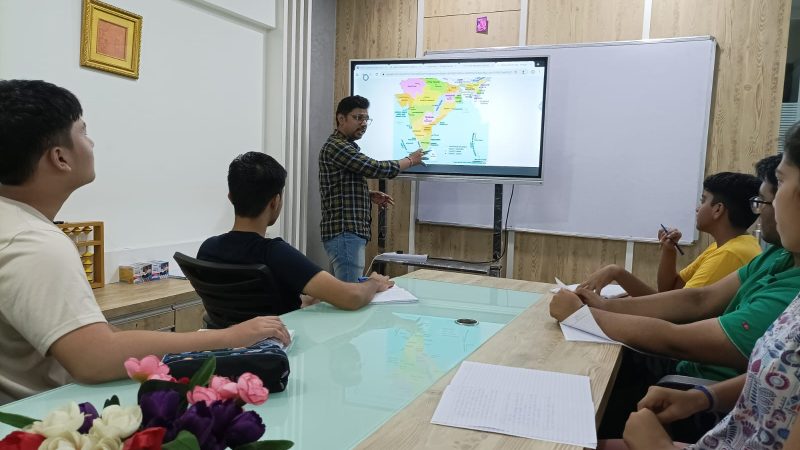
Coaching Facilities
At Ascent Coaching Center, we are aware that academic success depends on a supportive learning atmosphere. Our cutting-edge facilities are made to give students a comprehensive and stimulating educational experience.
- Competent educators
- Individual mentors
- Classes under CCTV Surveillance
- Modern classrooms Coaching session at Kharadi, Dhanori, Magarpatta the most desirable Locations
- Additional lessons for Clearing up questions and Getting ready for tests
- Timely completion of the Syllabus
- Best infrastructure
- Full length test series for final touch
- Workshops that are useful For students
- Technology help's Teachers with challenging ideas.
- 1-on-1 instruction
- Career guidance
Reasons to Choose
Ascent Coaching Centre
Experienced Faculty
Our team of experienced educators are dedicated to nurture each student's academic growth.
Result-Oriented Approach
Our focus is on achieving tangible academic results and helping students build a strong academic foundation.
Holistic Development
Beyond academics, we emphasize character building, personality development, and leadership skills.
Proven Track Record
Our past students have consistently excelled in CBSE board examinations, showcasing the effectiveness of our teaching methods. .
12th std
The CBSE Class 12th Maths Syllabus covers the following major topics. Students can get the detail of sub topics under each major topic by going through the CBSE Syllabus of Class 12th.
Part 1
Chapter 1 – Relations and Functions
Chapter 2 – Inverse Trigonometric Functions
Chapter 3 – Matrices
Chapter 4 – Determinants
Chapter 5 – Continuity and Differentiability
Chapter 6 – Application of Derivatives
Download CBSE class 12 th Maths(part-1) subject NCERT book
Part 2
Chapter 7 – Integrals
Chapter 8 – Application of Integrals
Chapter 9 – Differential Equations
Chapter 10 – Vector Algebra
Chapter 11 – Three Dimensional Geometry
Chapter 12 – Linear Programming
Chapter 13 – Probability
Download CBSE class 12 th Maths (part-2)subject NCERT book
The CBSE Class 12th Biology Syllabus covers the following major topics. Students can get the detail of sub topics under each major topic by going through the CBSE Syllabus of Class 12th.
Reproduction
Chapter 1 Sexual Reproduction in Flowering Plants
Chapter 2 Human Reproduction
Chapter 3 Reproductive Health
Genetics and Evolution
Chapter 4 Principles of Inheritance and Variation
Chapter 5 Molecular Basis of Inheritance
Chapter 6 Evolution
Biology in Human Welfare
Chapter 7 Human Health and Disease
Chapter 8 Microbes in Human Welfare
Biotechnology
Chapter 9 Biotechnology: Principles and Processes
Chapter 10 Biotechnology and Its Applications
Ecology
Chapter 11 Organisms and Populations
Chapter 12 Ecosystem
Chapter 13 Biodiversity and Conservation
Download CBSE class 12 th Biology subject NCERT book
The CBSE Class 12th Chemistry Syllabus covers the following major topics. Students can get the detail of sub topics under each major topic by going through the CBSE Syllabus of Class 12th.
Part-1
Unit 1 Solutions
Unit 2 Electrochemistry
Unit 3 Chemical Kinetics
Unit 4 The d- and f-Block Elements
Unit 5 Coordination Compounds
Download CBSE class 12 th Chemistry subject NCERT book
Part-2
Unit 6 Haloalkanes and Haloarenes
Unit 7 Alcohols, Phenols and Ethers
Unit 8 Aldehydes, Ketones and Carboxylic Acids
Unit 9 Amines
Unit 10 Biomolecules
Download CBSE class 12 th Chemistry subject NCERT book
The CBSE Class 12th Physics Syllabus covers the following major topics. Students can get the detail of sub topics under each major topic by going through the CBSE Syllabus of Class 12th.
Part 1
Chapter 1 – Electric Charges and Fields
Chapter 2 – Electrostatic Potential and Capacitance
Chapter 3 – Current Electricity
Chapter 4 – Moving Charges and Magnetism
Chapter 5 – Magnetism and Matter
Chapter 6 – Electromagnetic Induction
Chapter 7 – Alternating Current Solutions
Chapter 8 – Electromagnetic Waves
Download CBSE class 12 th Physics(part-1) subject NCERT book
Part 2
Chapter 9 – Ray Optics and Optical Instruments
Chapter 10 – Wave Optics
Chapter 11 – Dual Nature of Radiation and Matter
Chapter 12 – Atoms
Chapter 13 – Nuclei
Chapter 14 – Semiconductor Electronics: Materials, Devices and Simple Circuits
Download CBSE class 12 th Physics(part-2) subject NCERT book
The CBSE Class 12th Physics Syllabus covers the following major topics. Students can get the detail of sub topics under each major topic by going through the CBSE Syllabus of Class 12th.
Business Studies
Part -1
Chapter 1: Nature and Significance of Management
Chapter 2: Principles of Management
Chapter 3: Business Environment
Chapter 4: Planning
Chapter 5: Organising
Chapter 6: Staffing
Chapter 7: Directing
Chapter 8: Controlling
Download CBSE class 12 th Buisness Studies Part-1 subject NCERT book
Part-2
Chapter 9: Financial Management
Chapter 10: Marketing
Chapter 11: Consumer protection
Download CBSE class 12 th Buisness Studies Part-2 subject NCERT book
Accountancy
Part-1
Chapter 1: Accounting for Partnership: Basic Concepts
Chapter 2: Reconstitution of a Partnership Firm – Admission of a Partner
Chapter 3: Reconstitution of a Partnership Firm – Retirement/Death of a Partner
Chapter 4: Dissolution of Partnership Firm
Download CBSE class 12 th Accountancy Part-1 subject NCERT book
Part-2
Chapter 1: Accounting for Share Capital
Chapter 2: Issue and Redemption of Debentures
Chapter 3: Financial Statements of a Company
Chapter 4: Analysis of Financial Statements
Chapter 5: Accounting Ratios
Chapter 6: Cash Flow Statement
Download CBSE class 12 th Accountancy Part-2 subject NCERT book
Economics
Part-1
Chapter 1: Introduction
Chapter 2: Theory of Consumer Behaviour
Chapter 3: Production and Costs
Chapter 4: The Theory of Firm under Perfect Competition
Chapter 5: Market Equilibrium
Part-2
Download CBSE class 12 th Economics Part-1 subject NCERT book
Chapter 1: Introduction
Chapter 2: National Income Accounting
Chapter 3: Money and Banking
Chapter 4: Determination of Income and Employment
Chapter 5: Government Budget and Economy
Chapter 6: Open Economy Macroeconomics
Download CBSE class 12 th Economics Part-2 subject NCERT book
11th std
The CBSE Class 11th Maths Syllabus covers the following major topics. Students can get the detail of sub topics under each major topic by going
Chapter 1 – Sets
Chapter 2 – Relations and Functions
Chapter 3 – Trigonometric Functions
Chapter 4 – Complex Numbers and Quadratic Equations
Chapter 5 – Linear Inequalities
Chapter 6 – Permutations and Combinations
Chapter 7 – Binomial Theorem
Chapter 8 – Sequences and Series
Chapter 9 – Straight Lines
Chapter 10 – Conic Sections
Chapter 11 – Introduction to Three Dimensional Geometry
Chapter 12 – Limits and Derivatives
Chapter 13 – Statistics
Chapter 14 – Probability
through the CBSE Syllabus of Class 11th.
Download CBSE class 11 th Maths subject NCERT book
Chapter 1 The Living World
Chapter 2 Biological Classification
Chapter 3 Plant Kingdom
Chapter 4 Animal Kingdom
Chapter 5 Morphology of Flowering Plants
Chapter 6 Anatomy of Flowering Plants
Chapter 7 Structural Organisation in Animals
Chapter 8 Cell The Unit of Life
Chapter 9 Biomolecules
Chapter 10 Cell Cycle and Cell Division
Chapter 11 Photosynthesis in Higher Plants
Chapter 12 Respiration in Plants
Chapter 13 Plant Growth and Development
Chapter 14 Breathing and Exchange of Gases
Chapter 15 Body Fluids and Circulation
Chapter 16 Excretory Products and their Elimination
Chapter 17 Locomotion and Movement
Chapter 18 Neural Control and Coordination
Chapter 19 Chemical Coordination and Integration.
Download CBSE class 11 th Biology subject NCERT book
Part-1
Chapter-Wise NCERT Solutions for Class 11 Chemistry
Chapter 1: Some Basic Concepts of Chemistry
Chapter 2: Structure of Atom
Chapter 3: Classification of Elements and Periodicity in Properties
Chapter 4: Chemical Bonding and Molecular Structure
Chapter 5: Thermodynamics
Chapter 6: Equilibrium
Download CBSE class 11 th chemistry(part-1) subject NCERT book
Part-2
Chapter 7: Redox Reactions
Chapter 8: Organic Chemistry – Some Basic Principles & Techniques
Chapter 9: Hydrocarbons
Download CBSE class 11 th chemistry(part-2) subject NCERT book
Part-1
The CBSE Class 11th Physics Syllabus covers the following major topics. Students can get the detail of sub topics under each major topic by going
NCERT Solutions for Class 11 Physics (Chapter-wise)
Chapter 1: Units and Measurements
Chapter 2: Motion in a Straight Line
Chapter 3: Motion in a Plane
Chapter 4: Laws of Motion
Chapter 5: Work, Energy, and Power
Chapter 6: System of Particles and Rotational Motion
Chapter 7: Gravitation
Download CBSE class 11 th physics(part-1) subject NCERT book
Part-2
Chapter 8: Mechanical Properties of Solids
Chapter 9: Mechanical Properties of Fluids
Chapter 10: Thermal Properties of Matter
Chapter 11: Thermodynamics
Chapter 12: Kinetic Theory
Chapter 13: Oscillations
Chapter 14: Waves
Download CBSE class 11 th physics(part-2) subject NCERT book
The CBSE Class 11th Physics Syllabus covers the following major topics. Students can get the detail of sub topics under each major topic by going through the CBSE Syllabus of Class 11th.
Business Studies
Part B
Nature and Purpose of Business
Forms of Business Organisations
Public, Private and Global Enterprises
Business Services
Emerging Moades of Business
Social Responsibility and Business Ethics
Part B
Finance and Trade
Sources of Business Finance
Small Business
Internal Trade
International Business
Download CBSE class 11 th Buisness Studies subject NCERT book
Accountancy
Part 1
Chapter 1: Introduction to Accounting
Chapter 2: Theory Base of Accounting
Chapter 3: Recording of Transactions – I
Chapter 4: Recording of Transactions – II
Chapter 5: Bank Reconciliation Statement
Chapter 6: Trial Balance and Rectification of Errors
Chapter 7: Depreciation, Provisions and Reserves
Download CBSE class 11 th Accountancy Part-1 subject NCERT book
Part 2
NCERT Books for Class 11 Accountancy
Chapter 8: Financial Statements – I
Chapter 9: Financial Statements – II
Download CBSE class 11 th Accountancy Part-2 subject NCERT book
Economics
Chapter 1: Indian Economy on the Eve of Independence
Chapter 2: Indian Economy (1950-1990)
Chapter 3: Liberalisation, Privatisation and Globalisation: An Appraisal
Chapter 4: Human Capital Formation in India
Chapter 5: Rural Development
Chapter 6: Employment Growth, Informalisation and Other Issues
Chapter 7: Environment and Sustainable Development
Chapter 8: Comparative development Experiences of India and Its Neighbours
Download CBSE class 11 th Economics subject NCERT book
10th std
Class 10 Maths syllabus aims at helping the students build a strong base of these topics by giving them the basic knowledge about them, making them understand theorems and concepts and testing them enough in the form of exercise and examples in the textbook. The exercises in the NCERT textbook are designed for the students to use their skills and learnings of each topic to the maximum. Before each exercise, the students are also given enough examples to refer to and understand the questions with the help of the step by step explanations provided in the textbooks.
CBSE Class 10 Maths Syllabus
The CBSE Class 10 Maths Syllabus covers the following major topics. Students can get the detail of sub topics under each major topic by going through the CBSE Syllabus of Class 10 PDF.
Chapter 1 : Real Numbers
Chapter 2 : Polynomials
Chapter 3 : Pair of Linear Equations in Two Variables
Chapter 4 : Quadratic Equations
Chapter 5 : Arithmetic Progressions
Chapter 6 : Triangles
Chapter 7 : Coordinate Geometry
Chapter 8 : Introduction to Trigonometry
Chapter 9 : Some Applications of Trigonometry
Chapter 10 : Circles
Chapter 11 : Constructions
Chapter 12 : Areas Related to Circles
Chapter 13 : Surface Areas and Volumes
Chapter 14 : Statistics
Chapter 15 : Probability
CBSE Class 10 Maths Books Referred
NCERT Concepts → NCERT Numeric → RD Sharma /RS Aggarwal → Exempls → Sample Papers
Methodology
We are using CAPQ technique in our classes for our CBSE Classes.
Concepts → Application → Presentation → Questions & Answers
- Wear the Smart CAPQ to score higher
- In person Free counselling for the Students
- We work on their respective Study Methodologies with special emphasis on keywords, Formulas and Diagrams
Download CBSE class 10 Maths subject NCERT book
Ascent has carefully designed the science NCERT Solutions for class 10 Science that can help you understand the concepts and learn how to answer properly in board exams. The NCERT Class 10 science book consists of 16 chapters, and they are divided into three parts; each part has a specific field of science. You can also download NCERT Solutions for Class 10 Science.
CBSE Class 10 Science Syllabus
Based on the above mentioned CBSE Class 10 Syllabus topics, these chapters are provided in NCERT Class 10 Science textbook. Students must study these chapters in order to cover the Science Syllabus of Class 10.
Chapter 1 : Chemical Reactions and Equations
Chapter 2 : Acids, Bases and Salts
Chapter 3 : Metals and Non-metals
Chapter 4 : Carbon and Its Compounds
Chapter 5 : Periodic Classification of Elements
Chapter 6 : Life Processes
Chapter 7 : Control and Coordination
Chapter 8 : How do Organisms Reproduce?
Chapter 9 : Heredity and Evolution
Chapter 10 : Light Reflection and Refraction
Chapter 11 : Human Eye and Colourful World
Chapter 12 : Electricity
Chapter 13 : Magnetic Effects of Electric Current
Chapter 14 : Sources of Energy
Chapter 15 : Our Environment
Chapter 16 : Sustainable Management of Natural Resources
CBSE Class 10 Science Books Referred
Lakhmir Singh By S Chand Publications → NCERT Reading → Oswal for Mind Mapping and Extra Questions → Exemples → Sample Papers
Methodology
We are using CAP technique in our classes for our CBSE Classes.
Concepts → Application → Presentation→ Questions & Answers
- Wear the Smart CAP to score higher
- In person Free counselling for the Students
- We work on their respective Study Methodologies with special emphasis on keywords, Formulas and Diagrams.
Download CBSE class 10 science subject NCERT book
Ascent has carefully designed the science NCERT Solutions for class 10 Science that can help you understand the concepts and learn how to answer properly in board exams. The NCERT Class 10 science book consists of 16 chapters, and they are divided into three parts; each part has a specific field of science. You can also download NCERT Solutions for Class 10 Social Science
Class 10 Social Science – History Books
NCERT Books for class 10 History – India and The Contemporary World – II all chapters in English Medium are given below to download in PDF. All the books are updated for new academic session.
Chapter 1: The Rise of Nationalism in Europe
Chapter 2: Nationalism in India
Chapter 3: The Making of a Global World
Chapter 4: The Age of Industrialisation
Chapter 5: Print Culture and The Modern World
Download CBSE class 10 History subject NCERT book
Class 10 Social – Geography Books in English
Class 10 Geography (Contemporary India – II) textbooks are given below in English medium updated for new academic session. Download books here and for solutions move to class 10 Social Science solutions page.
Chapter 1: Resources and Development
Chapter 2: Forest and Wildlife Resources
Chapter 3: Water Resources
Chapter 4: Agriculture
Chapter 5: Minerals and Energy Resources
Chapter 6: Manufacturing Industries
Chapter 7: Lifelines of National Economy
Download CBSE class 10 Geoghraphy subject NCERT book
Class 10 Social – Civics Books
Class 10 Social Science – Political Science (Democratic Politics -II) NCERT Books in English Medium are given below to download in PDF form updated for new session.
Chapter 1: Power Sharing
Chapter 2: Federalism
Chapter 3: Gender, Religion and Caste
Chapter 4: Political Parties
Chapter 5: Outcomes of Democracy
Download CBSE class 10 Civics subject NCERT book
Class 10 Social Science – Economics Books
Class 10 Economics (Understanding Economic Development) textbooks for high school in English medium are given below to download in PDF format updated for new academic session.
Chapter 1: Development
Chapter 2: Sectors of the Indian Economy
Chapter 3: Money and Credit
Chapter 4: Globalisation and the Indian Economy
Chapter 5: Consumer Rights
9th std
Class 9 Maths covers essential topics like Triangles, Polynomials, and Number Systems. Ascent mentors have compiled reliable NCERT Class 9 Maths Solutions to help students master these concepts. The step-by-step solutions make tackling challenging exercises easier, ensuring effective exam preparation.
CBSE Class 9 Maths Syllabus
The CBSE Class 9 Maths Syllabus covers the following major topics. Students can get the detail of sub topics under each major topic by going through the CBSE Syllabus of Class 9 PDF.
Chapter 1 : Number System
Chapter 2 : Polynomial
Chapter 3 : Coordinate Geometry
Chapter 4 : Linear Equations in Two Variables
Chapter 5 : Introduction to Euclid’s Geometry
Chapter 6 : Lines and Angles
Chapter 7 : Triangles
Chapter 8 : Quadrilaterals
Chapter 9 : Areas of Parallelograms
Chapter 10 : Circles
Chapter 11 : Constructions
Chapter 12 : Heron’s Formula
Chapter 13 : Surface Areas and Volumes
Chapter 14 : Statistics
Chapter 15 : Probability
CBSE Class 9 Maths Books Referred
NCERT Concepts → NCERT Numeric → RD Sharma /RS Aggarwal → Exempls → Sample Papers
Methodology
We are using CAPQ technique in our classes for our CBSE Classes.
Concepts → Application → Presentation→ Questions & Answers
- Wear the Smart CAPQ to score higher
- In person Free counselling for the Students
- We work on their respective Study Methodologies with special emphasis on keywords, Formulas and Diagrams.
Download CBSE class 9 Maths subject NCERT book
Class 9 Science is definitely more extensive than what students studied in the previous class. It also forms a foundation for everything that is yet to come in the higher chapter, therefore, paying complete attention and understanding each topic thoroughly is essential. While some students find Science difficult, some find it easy. However, to make it easy, understanding the subject is very important and this can be accomplished with the help of NCERT Solutions.
CBSE Class 9 Science Syllabus
Based on the above mentioned CBSE Class 9 Syllabus topics, these chapters are provided in NCERT Class 9 Science textbook. Students must study these chapters in order to cover the Science Syllabus of Class 9.
Chapter 1 : Matter In Our Surroundings
Chapter 2 : Is Matter Around Us Pure?
Chapter 3 : Atoms And Molecules
Chapter 4 : Structure Of The Atom
Chapter 5 : The Fundamental Unit Of Life
Chapter 6 : Tissues
Chapter 7 : Diversity In Living Organisms
Chapter 8 : Motion
Chapter 9 : Force And Laws Of Motion
Chapter 10 : Gravitation
Chapter 11 : Work And Energy
Chapter 12 : Sound
Chapter 13 : Why Do We Fall Ill?
Chapter 14 : Natural Resources
Chapter 15 : Improvement In Food Resources
CBSE Class 9 Science Books Referred
Lakhmir Singh By S Chand Publications → NCERT Reading → Oswal for Mind Mapping and Extra Questions → Exemples → Sample Papers
Methodology
We are using CAPQ technique in our classes for our CBSE Classes.
Concepts → Application → Presentation→ Questions & Answers
- Wear the Smart CAPQ to score higher
- In person Free counselling for the Students
- We work on their respective Study Methodologies with special emphasis on keywords, Formulas and Diagrams.
Download CBSE class 9 Science subject NCERT Book
Class 9 Science is definitely more extensive than what students studied in the previous class. It also forms a foundation for everything that is yet to come in the higher chapter, therefore, paying complete attention and understanding each topic thoroughly is essential. While some students find Science difficult, some find it easy. However, to make it easy, understanding the subject is very important and this can be accomplished with the help of NCERT Solutions.
CBSE Class 9 Science Syllabus
Based on the above mentioned CBSE Class 9 Syllabus topics, these chapters are provided in NCERT Class 9 Science textbook. Students must study these chapters in order to cover the Science Syllabus of Class 9.
Chapter 1 : Matter In Our Surroundings
Chapter 2 : Is Matter Around Us Pure?
Chapter 3 : Atoms And Molecules
Chapter 4 : Structure Of The Atom
Chapter 5 : The Fundamental Unit Of Life
Chapter 6 : Tissues
Chapter 7 : Diversity In Living Organisms
Chapter 8 : Motion
Chapter 9 : Force And Laws Of Motion
Chapter 10 : Gravitation
Chapter 11 : Work And Energy
Chapter 12 : Sound
Chapter 13 : Why Do We Fall Ill?
Chapter 14 : Natural Resources
Chapter 15 : Improvement In Food Resources
CBSE Class 9 Science Books Referred
Lakhmir Singh By S Chand Publications → NCERT Reading → Oswal for Mind Mapping and Extra Questions → Exemples → Sample Papers
Methodology
We are using CAPQ technique in our classes for our CBSE Classes.
Concepts → Application → Presentation→ Questions & Answers
- Wear the Smart CAPQ to score higher
- In person Free counselling for the Students
- We work on their respective Study Methodologies with special emphasis on keywords, Formulas and Diagrams.
Download CBSE class 9 Science subject NCERT Book
8th std
Build a strong foundation for class 9 & 10 Maths with our CBSE syllabus-based classes. We use NCERT and R D Sharma books, covering additional topics as needed. Practice worksheets and interactive sessions ensure personalized attention. Join our class 8 Maths Tuition for a top-notch learning experience. Classes three times a week with extra sessions as required.
CBSE Class 8 Maths Syllabus
The CBSE Class 8 Maths Syllabus covers the following major topics. Students can get the detail of sub topics under each major topic by going through the CBSE Syllabus of Class 8 PDF.
- Number System
(i) Rational Numbers
(ii) Powers
(iii) Squares, Square roots, Cubes, Cube roots
(iv) Playing with numbers - Algebra
(i) Algebraic Expressions - Ratio and Proportion
- Geometry
i) Understanding shapes:
ii) Representing 3-D in 2-D
iii) Construction - Mensuration
- Data handling
- Introduction to graphs
CBSE Class 8 Maths Books Referred
NCERT Concepts → NCERT Numeric → RD Sharma /RS Aggarwal → Exempls → Sample Papers
Methodology
We are using CAPQ technique in our classes for our CBSE Classes.
Concepts → Application → Presentation→ Questions & Answers
- Wear the Smart CAPQ to score higher
- In person Free counselling for the Students
- We work on their respective Study Methodologies with special emphasis on keywords, Formulas and Diagrams.
Download CBSE class 8 Mathes subject NCERT Book
Establish a solid foundation for class 9 & 10 Science with our CBSE syllabus-based classes using NCERT and “Awareness Science” by Lakhmir Singh & Oswal. We cover extra topics as needed. Simplify complex concepts with daily life examples and videos. Small batches ensure personalized attention, and interactive sessions address doubts immediately. Join our class 8 Science Tuition for a unique learning experience, three classes per week with extra sessions when required.
CBSE Class 8 Science Syllabus
Based on the above mentioned CBSE Class 8 Syllabus topics, these chapters are provided in NCERT Class 8 Science textbook. Students must study these chapters in order to cover the Science Syllabus of Class 8.
Chapter 1: Crop Production and Management
Chapter 2: Microorganisms : Friend and Foe
Chapter 3: Synthetic Fibres and Plastics
Chapter 4: Materials – Metals and Non-Metals
Chapter 5: Coal and Petroleum
Chapter 6: Combustion and Flame
Chapter 7: Conservation of Plants and Animals
Chapter 8: Cell – Structure and Functions
Chapter 9: Reproduction in Animals
Chapter 10: Reaching the Age of Adolescence
Chapter 11: Force and Pressure
Chapter 12: Friction
Chapter 13: Sound
Chapter 14: Chemical Effects of Electric Current
Chapter 15: Some Natural Phenomena
Chapter 16: Light
Chapter 17: Stars and The Solar System
Chapter 18: Pollution of Air and Water
CBSE Class 8 Science Books Referred
Lakhmir Singh By S Chand Publications → NCERT Reading → Oswal for Mind Mapping and Extra Questions → Exemples → Sample Papers
Methodology
We are using CAPQ technique in our classes for our CBSE Classes.
Concepts → Application → Presentation→ Questions & Answers
- Wear the Smart CAPQ to score higher
- In person Free counselling for the Students
- We work on their respective Study Methodologies with special emphasis on keywords, Formulas and Diagrams.
Download CBSE class 8 Science subject NCERT Book
Establish a solid foundation for class 9 & 10 Science with our CBSE syllabus-based classes using NCERT and “Awareness Science” by Lakhmir Singh & Oswal. We cover extra topics as needed. Simplify complex concepts with daily life examples and videos. Small batches ensure personalized attention, and interactive sessions address doubts immediately. Join our class 8 Science Tuition for a unique learning experience, three classes per week with extra sessions when required.
CBSE Class 8 Science Syllabus
Based on the above mentioned CBSE Class 8 Syllabus topics, these chapters are provided in NCERT Class 8 Science textbook. Students must study these chapters in order to cover the Science Syllabus of Class 8.
Chapter 1: Crop Production and Management
Chapter 2: Microorganisms : Friend and Foe
Chapter 3: Synthetic Fibres and Plastics
Chapter 4: Materials – Metals and Non-Metals
Chapter 5: Coal and Petroleum
Chapter 6: Combustion and Flame
Chapter 7: Conservation of Plants and Animals
Chapter 8: Cell – Structure and Functions
Chapter 9: Reproduction in Animals
Chapter 10: Reaching the Age of Adolescence
Chapter 11: Force and Pressure
Chapter 12: Friction
Chapter 13: Sound
Chapter 14: Chemical Effects of Electric Current
Chapter 15: Some Natural Phenomena
Chapter 16: Light
Chapter 17: Stars and The Solar System
Chapter 18: Pollution of Air and Water
CBSE Class 8 Science Books Referred
Lakhmir Singh By S Chand Publications → NCERT Reading → Oswal for Mind Mapping and Extra Questions → Exemples → Sample Papers
Methodology
We are using CAPQ technique in our classes for our CBSE Classes.
Concepts → Application → Presentation→ Questions & Answers
- Wear the Smart CAPQ to score higher
- In person Free counselling for the Students
- We work on their respective Study Methodologies with special emphasis on keywords, Formulas and Diagrams.
Download CBSE class 8 Science subject NCERT Book
7th std
Class 7 CBSE Maths Syllabus includes the pivotal subject of Data Handling, increasingly important for future careers in data science. This chapter holds significance for students aspiring to excel in that field. The diverse chapters in the syllabus cover a broad but fundamental mathematics spectrum, laying the groundwork for a robust understanding in Class 8th and 9th. The cumulative knowledge from Class 6th to 8th is crucial for comprehending concepts in 9th and 10th grades, emphasizing the need for a meticulous approach to each chapter.
CBSE Class 7 Maths Syllabus
The CBSE Class 7 Maths Syllabus covers the following major topics. Students can get the detail of sub topics under each major topic by going through the CBSE Syllabus of Class 7 PDF.
Chapter 1 : Integers
Chapter 2 : Fractions and Decimals
Chapter 3 : Data Handling
Chapter 4 : Simple Equations
Chapter 5 : Lines and Angles
Chapter 6 : The Triangle and its Properties
Chapter 7 : Congruence of Triangles
Chapter 8 : Comparing Quantities
Chapter 9 : Rational Numbers
Chapter 10 : Practical Geometry
Chapter 11 : Perimeter and Area
Chapter 12 : Algebraic Expressions
Chapter 13 : Exponents and Powers
Chapter 14 : Symmetry
Chapter 15 : Visualising Solid Shapes
CBSE Class 7 Maths Books Referred
NCERT Concepts → NCERT Numeric → RD Sharma /RS Aggarwal → Oswal → Exempls → Sample Papers
Methodology
We are using CAPQ technique in our classes for our CBSE Classes.
Concepts → Application → Presentation→ Questions & Answers
- Wear the Smart CAPQ to score higher
- In person Free counselling for the Students
- We work on their respective Study Methodologies with special emphasis on keywords, Formulas and Diagrams.
Download CBSE class 7 Maths subject NCERT book
Class 7 is a crucial stage to build your own concepts in science so the study should be conceptual at this stage. The whole science syllabus should be well understood at the beginning of the class and the study schedule should be prepared accordingly keeping pace with the school classes.
CBSE Class 7 Science Syllabus
Based on the above mentioned CBSE Class 8 Syllabus topics, these chapters are provided in NCERT Class 8 Science textbook. Students must study these chapters in order to cover the Science Syllabus of Class 8.
Chapter 1: Nutrition in Plants
Chapter 2: Nutrition in Animals
Chapter 3: Fibre to Fabric
Chapter 4: Heat
Chapter 5: Acids, Bases and Salts
Chapter 6: Physical and Chemical Changes
Chapter 7: Weather, Climate and Adaptations of Animals of Climate
Chapter 8: Winds, Storms and Cyclones
Chapter 9: Soil
Chapter 10: Respiration in Organisms
Chapter 11: Transportation in Animals and Plants
Chapter 12: Reproduction in Plants
Chapter 13: Motion and Time
Chapter 14: Electric Current and its Effects
Chapter 15: Light
Chapter 16: Water – A Precious Resource
Chapter 17: Forests – Our Lifeline
Chapter 18: Wastewater Story
Download CBSE class 7 Science subject NCERT Book
Class 7 is a crucial stage to build your own concepts in science so the study should be conceptual at this stage. The whole science syllabus should be well understood at the beginning of the class and the study schedule should be prepared accordingly keeping pace with the school classes.
CBSE Class 7 Science Syllabus
Based on the above mentioned CBSE Class 8 Syllabus topics, these chapters are provided in NCERT Class 8 Science textbook. Students must study these chapters in order to cover the Science Syllabus of Class 8.
Chapter 1: Nutrition in Plants
Chapter 2: Nutrition in Animals
Chapter 3: Fibre to Fabric
Chapter 4: Heat
Chapter 5: Acids, Bases and Salts
Chapter 6: Physical and Chemical Changes
Chapter 7: Weather, Climate and Adaptations of Animals of Climate
Chapter 8: Winds, Storms and Cyclones
Chapter 9: Soil
Chapter 10: Respiration in Organisms
Chapter 11: Transportation in Animals and Plants
Chapter 12: Reproduction in Plants
Chapter 13: Motion and Time
Chapter 14: Electric Current and its Effects
Chapter 15: Light
Chapter 16: Water – A Precious Resource
Chapter 17: Forests – Our Lifeline
Chapter 18: Wastewater Story
Download CBSE class 7 Science subject NCERT Book
6th std
The CBSE Class 6 Maths Syllabus covers the following major topics. Students can get the detail of sub topics under each major topic by going through the CBSE Syllabus of Class 6.
Chapter 1: Knowing Our Numbers
Chapter 2: Whole Numbers
Chapter 3: Playing with Numbers
Chapter 4: Basic Geometrical Ideas
Chapter 5: Understanding Elementary Shapes
Chapter 6: Integers
Chapter 7: Fractions
Chapter 8: Decimals
Chapter 9: Data Handling
Chapter 10: Mensuration
Chapter 11: Algebra
Chapter 12: Ratio and Proportion
Download CBSE class 6 Maths subject NCERT Book
The CBSE Class 6 Science Syllabus covers the following major topics. Students can get the detail of sub topics under each major topic by going through the CBSE Syllabus of Class 6.
Chapter 1: Components of Food
Chapter 2: Sorting Materials and Groups
Chapter 3: Separation of Substances
Chapter 4: Getting to Know Plants
Chapter 5: Body Movement
Chapter 6: The Living Organisms – Characteristics and Habitats
Chapter 7: Motion and Measurement of Distances
Chapter 8: Light, Shadows and Reflections
Chapter 9: Electricity and Circuits
Chapter 10: Fun with Magnets
Chapter 11: Air Around Us
Download CBSE class 6 Science subject NCERT Book
5th std
The CBSE Class 5 Maths Syllabus covers the following major topics. Students can get the detail of sub topics under each major topic by going through the CBSE Syllabus of Class 5.
Chapter 1: The Fish Tale
Chapter 2: Shapes and Angles
Chapter 3 :How Many Squares?
Chapter 4: Parts and Wholes
Chapter 5: Does It Look the Same?
Chapter 6: Be My Multiple, I’ll Be Your Factor
Chapter 7: Can You See the Pattern?
Chapter 8: Mapping Your Way
Chapter 9: Boxes and Sketches
Chapter 10: Tenths and Hundredths
Chapter 11: Area and Its Boundary
Chapter 12: Smart Charts
Chapter 13 :Ways to Multiply and Divide
Chapter 14: How Big? How Heavy?
Download CBSE class 5 Maths subject NCERT Book
The CBSE Class 5 Science Syllabus covers the following major topics. Students can get the detail of sub topics under each major topic by going through the CBSE Syllabus of Class 5.
Chapter 1. Super Senses
Chapter 2. A Snake Charmer’s Story
Chapter 3. From Tasting to Digesting
Chapter 4. Mangoes Round the Year
Chapter 5. Seeds and Seeds
Chapter 6. Every Drop Counts
Chapter 7. Experiments with Water
Chapter 8. A Treat for Mosquitoes
Chapter 9. Up You Go!
Chapter 10. Walls Tell Stories
Chapter 11. Sunita in Space
Chapter 12. What if It Finishes…?
Chapter 13. A Shelter So High!
Chapter 14. When the Earth Shook!
Chapter 15. Blow Hot, Blow Cold
Chapter 16. Who Will Do This Work?
Chapter 17. Across the Wall
Chapter 18. No Place for Us?
Chapter 19. A Seed Tells a Farmer’s Story
Chapter 20. Whose Forests?
Chapter 21. Like Father, Like Daughter
Chapter 22. On the Move Again
Download CBSE class 5 Science subject NCERT Book
Our Faculties
Physics and Maths
Entrance Coach for 21 Years

Accounts & Economics
16 Years Experience

MA English, NET
6 years Experience

Ph.D in Chemistry
21 Years Experience

BCS, LLB, LLM
5 Years Experience

Ph.D - Molecular Biology
17 Years Experience
MSc, B.Ed

NEET 2020 Qualified (Bio)

English Language Trainer
7 Years of Experience
B.Ed , M.Ed

JEE Specialist (B.Ed, M.Sc.)
20 Years of Experience

Our Portfolio
Join Us On This Journey Of Excellence !
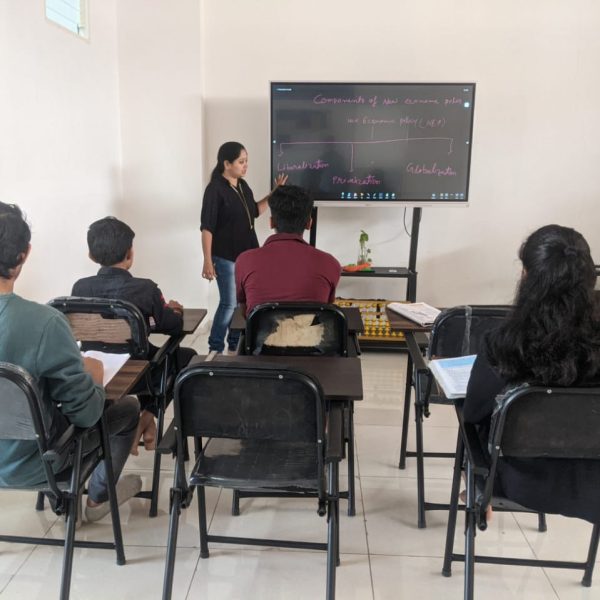
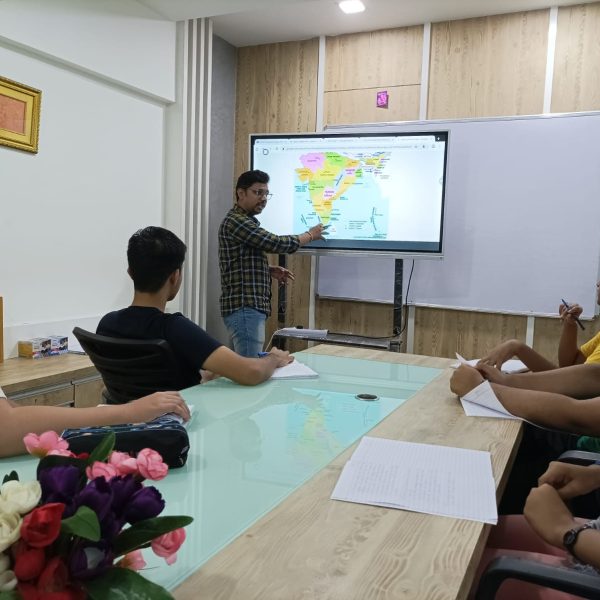

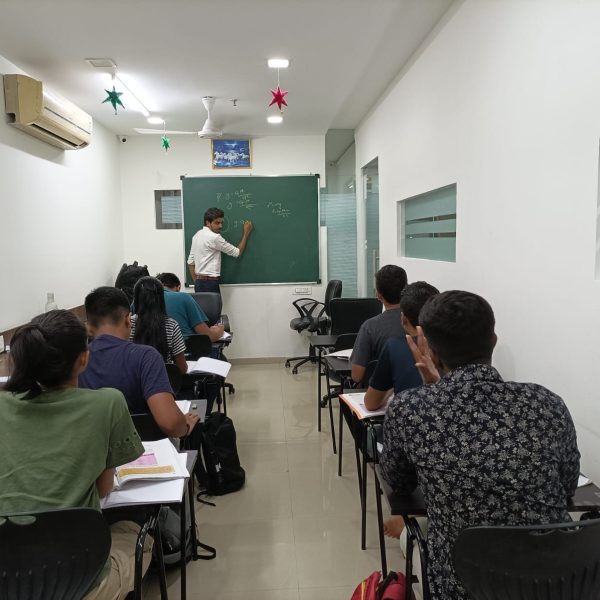
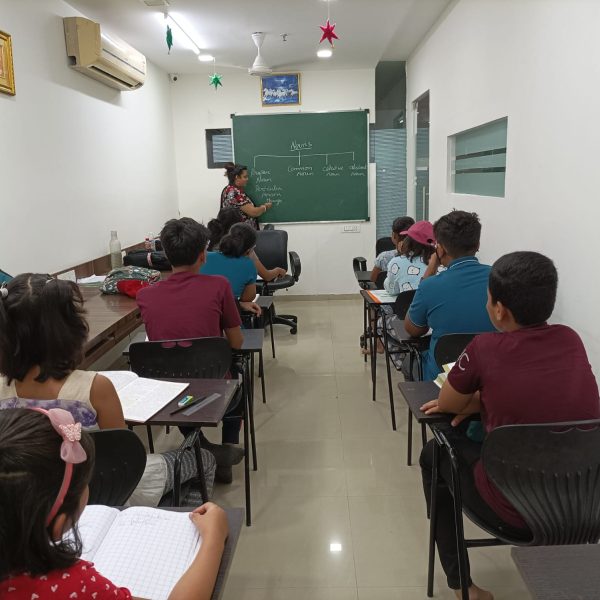
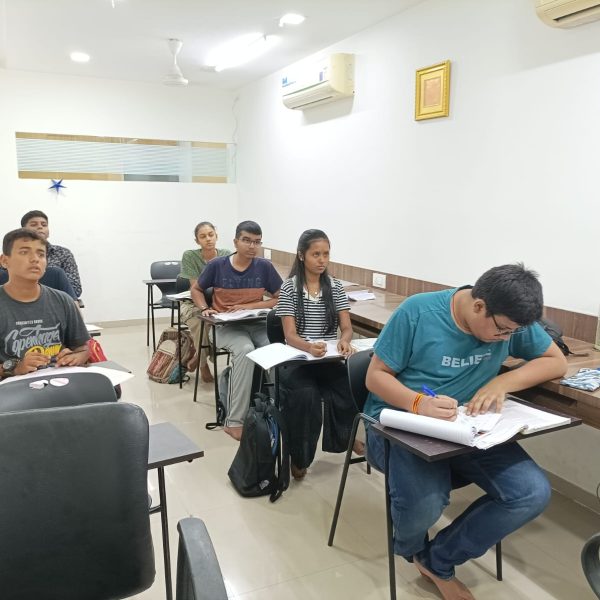
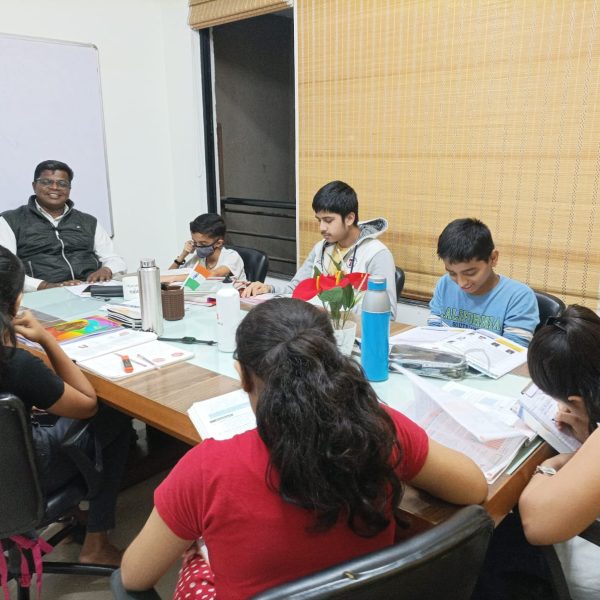

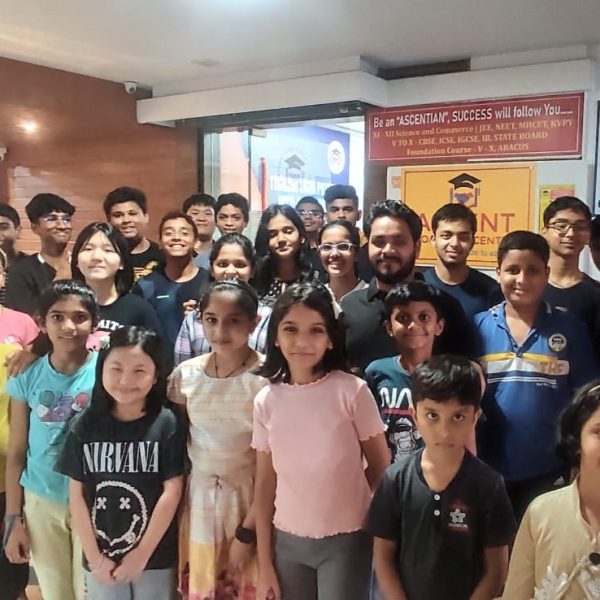
Useful links
Contact Details
-
Ascent Coaching Centre
Office no 401, 4th floor Fortune plaza, opp. Forest County, Eon free zone, near Toy Mall, behind Axis Bank, Kharadi. Pune 411014 -
Ascent Coaching Centre
203, Oxy Bonita, Porwal Sathe Wasti Rd, Dhanori-Lohegaon Rd, behind Gitai Lawns, Kutwal Colony, Lohegaon, Pune, Maharashtra 411047 -
Ascent Coaching Centre
Vishwa Junior College Campus, Above Bluestone Jewellery, Opposite Magarpatta South Gate, Next to Honda Car Showroom Magarpatta Bypass Hadapsar Pune -
ascentcoachingcentre2022@gmail.com
enquiry@ascentcoachingcentre.in
info@ascentcoachingcentre.in
- 7769859985
- 9579311404
- ascentcoachingcentre.in
Copyright © 2022, All Rights Reserved. Design & Developed by Webzo Technologies
How can we help you?

